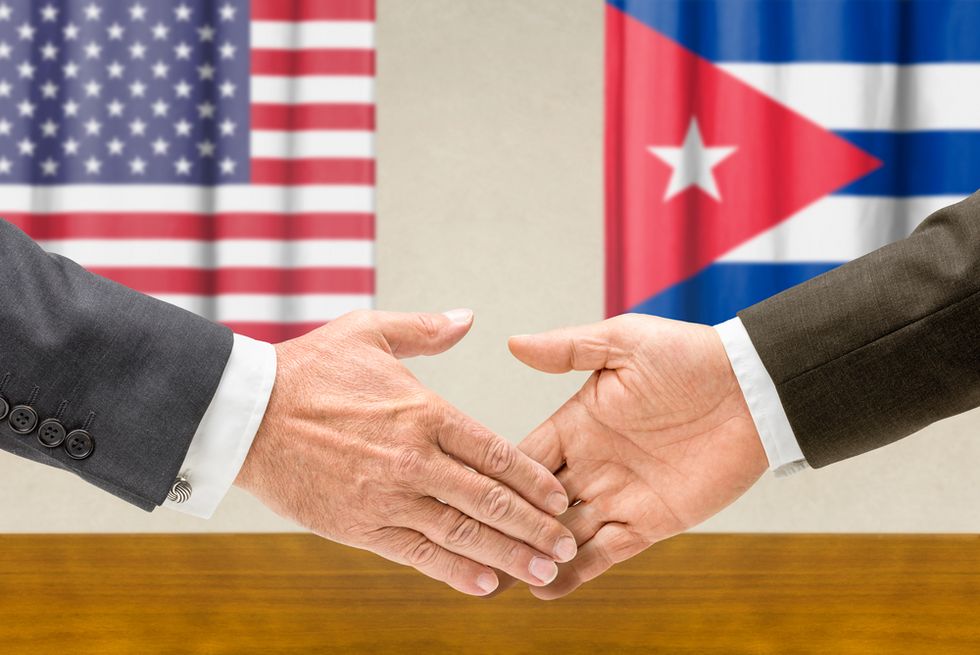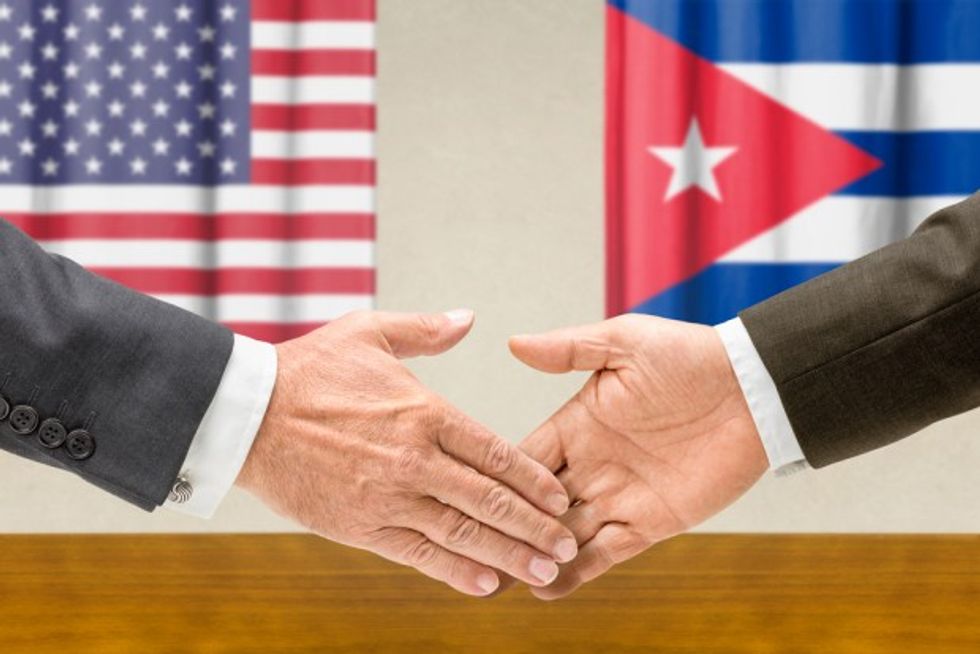
Photo credit: Shutterstock

Is it possible for an elected president to miss the mark on just about every foreign policy decision?
Before you answer that, it really does depend on which side of the aisle you are sitting on.
From where I’m sitting, I see another policy decision that may be starting to unravel for President Barack Obama.
Earlier this year, the Obama administration believed that it was high time for us to open up relations again with Cuba after more than 50 years of U.S. sanctions that were intended to bring down Fidel Castro’s Communist regime.

“Yes, there are those who want to turn back the clock and double down on a policy of isolation,” Obama said in July, “but it’s long past time for us to realize that this approach doesn’t work. It hasn’t worked for 50 years. It shuts America out of Cuba’s future, and it only makes life worse for the Cuban people.”
“This is a historic step forward in our efforts to normalize relations with the Cuban government and people, and begin a new chapter with our neighbors in the Americas,” Obama proclaimed from the White House Rose Garden.
Following Obama’s speech in July, the Cuban flag began flying high above its embassy in Washington just hours after full diplomatic relations had been reinstated.
Since the U.S. government had already removed Cuba from its list of state sponsors of terrorism in May, all that was left was for the two countries to begin moving forward down the path of “normalization,” where fences could be mended and all differences could be put aside.
It was a necessary change of course in Obama’s mind and a victory! Mission accomplished! Cue the band!
But wait! Could it be that this wonderful new “friendship” with Cuba is already beginning to show signs of growing tension?
It sure looks that way. Enter Russia, stage left.
Cuba reportedly has decided to join Russia in Syria to protect President Bashar al-Assad, a move that is in complete opposition to the U.S. position toward Assad.
According to reports, Cuban military operatives are already in Syria, where they are believed to be advising Assad and preparing to use Russian-made tanks to assist in Damascus and those fighting against U.S. backed rebel forces.
A U.S. official reportedly confirmed to Fox News that Cuba’s paramilitary and special forces units are indeed in Syria. The official further indicated that Cuba may have arrived in Syria on Russian planes because they had been training in Russia.
Should Obama have seen this move by Cuba coming?
Cuba and Russia have a long history that dates back to the days of the Soviet Union. A quick Internet search or thumbing through a history book would have easily provided the Obama administration with this pertinent information.
Cuba supported Russia in 2008 in the Russo-Georgian War, an armed conflict between Russian and Georgia separatists.
In addition, research would have revealed that Russia is Cuba’s leading creditor, and both countries maintain close economic ties, which makes it essential for one country to support the other in its “endeavors,” especially after Russia generously eliminated 90 percent of the $35 billion in debt that Cuba owed. Cuba knows that if it scratches Russia’s back, then Russia will surely return the favor.
It is rather obvious at this point, if not before, that any dealings with the United States that Cuba may seek is more like “icing on the cake” than a necessity, in light of the fact that Russia is more than willing to continue its longstanding relationship with its loyal “friend” and vice versa.
“It doesn’t surprise me,” Jaime Suchlicki, executive director of the Institute for Cuban and Cuban-American Studies at the University of Miami, said, referring to Cuba’s arrival in Russia to assist Assad.
“They have a very close relationship,” he said. “The Russians have been training the Cubans for years and supplying them with all sorts of military equipment.”
Suchlicki also noted that Cuba assisted Soviet-led operations in Africa in the 1970s.
He also pointed out that although Cuba’s military is small it is also “very well-trained” and that Cuba’s presence in Syria is a “departure from what the U.S. expected.”
Evidently, only our administration is surprised to see Cuba predictively supporting its close ally’s efforts within the region.
 Cuban President Raul Castro, left, and Russian President Vladimir Putin attend a ceremony at the Mausoleum of the Soviet Internationalist Soldier in Havana, Cuba. (AP/Ladyrene Perez, Cubadebate)
Cuban President Raul Castro, left, and Russian President Vladimir Putin attend a ceremony at the Mausoleum of the Soviet Internationalist Soldier in Havana, Cuba. (AP/Ladyrene Perez, Cubadebate)
Why is it that the U.S. government is surprised to see these two countries working closely together when this has been their clear pattern in the past?
Is this just a way for the Obama administration to plead ignorance of the facts just in case things go totally wrong in the area?
In any event, it looks like the “policy of isolation” that Obama spoke of in July, referring to our policy toward Cuba and our strategy of shutting “America out of Cuba’s future,” may have only mattered to Obama in his attempt to “normalize” relations with Cuba.
The Institute of Cuban and Cuban-American Studies, addressing what Cuba's presence in Syria implies, said “It would indicate that General Raul Castro is more interested in supporting his allies Russia and Syria, than in continuing to normalize relations with the U.S.”
Apparently so!
–
TheBlaze contributor channel supports an open discourse on a range of views. The opinions expressed in this channel are solely those of each individual author.